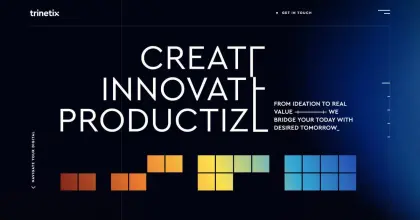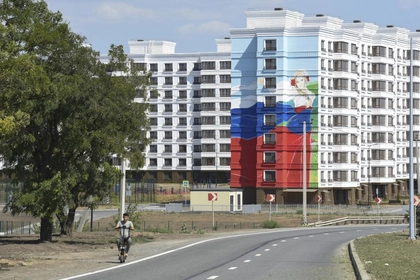In 2013, Ex-Sequoia Partner Michael Moritz, who previously led investments in Google, PayPal and Yahoo, decided to take a calculated risk.
The firm poured $8M into an online grocery growing business from San Francisco after the devastating failure of Webvan, a delivery startup from the dot-com era that had burned through a staggering $375 million before collapsing just 1.5 years after its inception.
JOIN US ON TELEGRAM
Follow our coverage of the war on the @Kyivpost_official.
The new venture was thriving, riding the wave of digital transformation. In 2020, after the COVID-19 pandemic hit the world, the company started receiving substantial investments from heavyweight players like DST Global, an early Facebook investor, and General Catalyst, investors in Airbnb and HubSpot, among others. Those checks dramatically accelerated the company's growth that we now know as Instacart.
Fast forward to September 2023, and Instacart made a grand entrance into the public markets through an IPO, valuing over $11.1B on the first day of trade. Michael Moritz’s initial $8 million investment had grown to a staggering $1 billion in value.
However, the public valuation was low almost four times since the last funding round more than two years ago. DST, General Catalyst and other investors of the cheap money era found themselves facing unrealized losses of over 35 percent on their investments.
A cautionary tale of bull-market investing took an irreparable knockdown. Still, that approach makes sense in various sectors, like a story with meme stock “GameStop” and Elon Musk’s triggers on cryptocurrency DOGE price, where we’ve witnessed how bubbles can expand to extraordinary proportions.

IMF Approves $1.1 Billion Loan Disbursement to Ukraine Before Trump Inauguration
But not in the realm of venture capital. Why? Liquidity (or lack thereof).
The Significance of Liquidity
A liquidity event is the Endspiel in the venture capital world. At this point, the investors see their investments converted into liquid assets, hopefully for much more than what they put in. These liquid assets can take various forms, such as cash, publicly traded shares of the startup, or shares of the company that wants to buy a startup.
Considering the typical lifespan of most venture capital funds and the initial investment period, venture investors typically anticipate a liquidity event to occur between 5 and 10 years.
But what happens if there’s a need to exit an investment sooner, especially right before economic challenges arise?
In most cases, the answer could be more straightforward. Little can be done except for the occasional secondary sales, which are more of a rarity and often the tale of winners, primarily involving those who have achieved outstanding results even in turbulent times.
The unique challenge in venture capital is that you can’t quickly divest your holdings. That’s why investors are now recovering from brash investing and refocusing on what has historically been the source of the most significant returns – writing small checks for young companies.
That strategy is particularly effective in the Ukrainian landscape after the full-scale invasion.
According to Forbes data, as of July 7, 2023, there have been 83 companies that received investments since February 24, 2022. These investments have come from early-stage-focused venture funds such as SID Venture Partners, SMRK, Geek Ventures, Vesna Capital, and others. Remarkably, only one startup has been written off, while three are paused.
It’s essential to note that Ukraine also has a well-developed subcategory of VC: angel investments. ICLUB, one of these angel syndicates, has invested in four Ukrainian companies since Feb. 24, including Fintech Farm, Yope, Utorg, and another undisclosed one under an NDA.
Furthermore, several Ukrainian startups have recently closed substantial deals, with DressX securing a $15 million deal, Trinetix a $10 million deal, Propertymate a $5.5 million deal, and Haiku a $4 million deal.
While the demand for investments in Ukraine is evident, the question remains about exits and liquidity.
Exits according to Ukrainian standards
According to recent data research from the Kyiv School of Economics, the M&A market in Ukraine witnessed substantial growth between 2000 and 2014. However, the conflict with Russia in 2022 led to a sharp decline, with only 39 deals totalling €46.8 million. This amount represented a mere 1 percent of the activity observed in 2013. The average deal price amounted to €1.29 million, significantly below the long-term average of €33 million.
KSE researchers provide an encouraging insight: Russian aggression attributed to the slowdown in the M&A market rather than any inherent issues within Ukrainian firms or the business environment. This point suggests that once the conflict with Russia is resolved and investments in Ukraine grow, the Ukrainian M&A market will likely return to its long-term average.
The success of this approach is evident both before and after the full-scale invasion.
In January 2022, two significant deals were closed: Samsung's subsidiary acquired the Ukrainian startup Apostera, specializing in AR and mixed reality for cars, while the US chip manufacturer Qualcomm purchased another AR startup, Augmented Pixels.
In October 2021, VistaPrint fully acquired photo bank DepositPhotos for $85 million.
This trend continued even after the invasion, with Swiss Ringier AG acquiring Ukrainian property tech startup Homsters in November 2022 and an acquisition of the gaming inventory marketplace DMarket announced in January 2023.
Ukrainian startups seek local investors within Ukraine to validate their ideas. Subsequently, once a startup matures and introduces its Minimum Viable Product (MVP), generates revenue, and demonstrates customer growth, it frequently turns to seeking foreign funding. This pattern explains why all the publicly covered exits in Ukraine differ from cases like Instacart when few investors are reaping substantial rewards and few face failures.
In contrast to the prevailing optimism, Konstantin Magaletskyi, a partner at the private equity firm Horizon Capital with $1.5B assets under management, offers a more cautious perspective on Ukraine’s M&A market.
On his LinkedIn page, he highlighted the predominant focus on supporting the public sector and infrastructure: “Donors and development institutions are focused on supporting the public sector, primarily in the area of critical infrastructure so that the country could function and survive, especially in winter - that's why UkrEnergo, Railways, etc.
“The private sector receives a very small part of the financing from these institutions - and then most of the money goes again to the largest companies that can take large sums and are more reliable clients – MHP, Kernel, etc.,” Magaletskyi continued.
“And suppose your business is not a world leader in the production of sunflower oil or chicken. In that case, your chances are much smaller…” emphasizing the need for increased investment in the private sector to match with the KSE narrative, “the Ukrainian M&A market will likely return to its long-term average.”
Summary
It would be best if you thought expansively at this time because there are too many variables at play to pinpoint the winners in such uncertain times. A prime example of this concept can be seen again in the case of Instacart and Sequoia.
Despite Sequoia’s significant investments of nearly $300 million in Instacart over the years, most of its profits stemmed from its initial modest investments in the company: the $8 million in 2013 and the $13 million in 2014.
Therefore, rushing into investments during a market frenzy while ignoring fundamental principles, geopolitical situations, and reasonable valuations can be a high-risk gamble akin to playing with fire.
You can also highlight the text and press Ctrl + Enter






